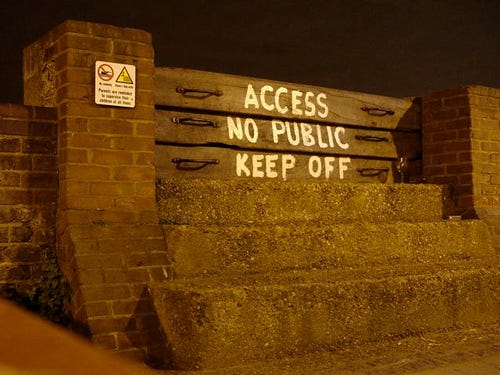
Most litigation lawyers are aware of the incredible power of interim orders. These orders acquire a heightened status due to the prolonged delays which beset our adjudicatory institutions. Often these delays morph interim orders into perpetual ones. Hence, they turn from merely protecting the rights of the Plaintiff to offending the interests of the Defendants. A popular legal metaphor, “of a shield being used as a sword” aptly describes this situation.
Alongside this realisation is the growing sense that interim orders when granted ex-parte are susceptible to being obtained by chicanery. The discovery of the slight of hand by Courts is often belated due to the procedural hurdles which complicate the task of vacating such ex-parte injunctions. Here the negative effects may stretch beyond the defendants to the society at large. Here the concept of “deadweight loses” becomes pertinent. “[D]eadweight loses” may be defined as a net loss of social welfare which occurs where there is an errant transfer of wealth from a party which is entitled legally to a non-entitled party. Ofer Grosskopf’s excellent article, “Economic Analysis of the Irreparable Harm Concept in Preliminary Injunctions” explains this problem. He states that even when a court cures this errant transfer inter-se the private parties, the public remain losers for the interceding period. There is no remedy or method for restitution for the public during the period when the injunction was improperly in place, putting a bar on the purchase of a good or the use of a service.
To bring the above thesis closer to our LCD screens, let us consider the example of internet content. Internet content is in the majority of cases, publicly accessible for a low transaction cost. It serves as a huge public library of information, opinion, data and knowledge. Here the public injury caused by an injunction blocking content will be tremendous. Recently the Delhi High Court, in the case of E2 Labs v. Zone-H being CS(OS) 2305/2009 blocked the domain Zone-H.com by way of an ex-parte interim order dated 04.12.2009. Since the Defendants are foreign nationals they did not appear subsequently and the interim order continued. Hence the defendant’s website which carried articles critical of the Plaintiff, E2 Labs remains blocked.
The case has caused a heated debate in cyberspace with several commentators questioning the bonafides of the plaintiff, E-2 Labs. There is also an article which is carried out in the Deccan Chronicle prior to the date of the injunction and the court case in which the Defendant has placed allegations on the Plaintiffs. The comments tell a version of the story in which the Plaintiff is not completely above board. Moreover, there are some deeply critical comments by students who have attended ethical hacking courses organised by the Plaintiff. These courses seem to have been marketed by using the Defendants name and image.
While recognising that relying on such anonymous comments may be erroneous, since they may be sponsored or authored by the private parties, this case clearly demonstrates the public injury which is caused due to blocking of content on the internet. This concern has been in the Ministerial Order on Website Blocking dated 7th July, 2003. It states in para 4, “as already noted there is no explicit provision in the I.T. Act, 2000 for blocking of websites. In fact, blocking is taken to amount to censorship…. [after listing cases where freedom of speech may not extend]…websites may not claim constitutional right of free speech… Blocking of such websites may be equated to “balanced flow of information” and not censorship”. This concern and respect for internet content is restated in the Information Technology (Procedure and Safeguards for Blocking for Access of Information by Public) Rules, 2009. Under the Rules a request can be made by any person to block a website which offends any Indian Law.The same level of deference should be accorded by Indian courts when ordering the blocking of a website since the interest’s to be balanced are not purely private.
Another concern which arises is the reluctance of a foreign defendant who operates an Internet business to appear before an Indian Court. I have discussed this matter at length in another blog post on the exit of Google from China. The defendant in the instant case echoes the sentiment by stating :
Roberto Preatoni admin@zone-h.org said, in March 12th, 2010 at 10:59 am
….Well, I don’t live in India, I think it’s more of your problem to sort out how this has happened and if it has happened legally.
Regards from Zone-H
The sequitur to be derived from this discussion on net public loss and the reluctance of a foreign defendant to appear in an Indian Court is quite simply that Indian Courts should consider the nature of the medium they seek to regulate. The Internet provides great promise of gain as well as loss. Here injunctions to block websites are powerful weapons and they may not be granted readily or easily.